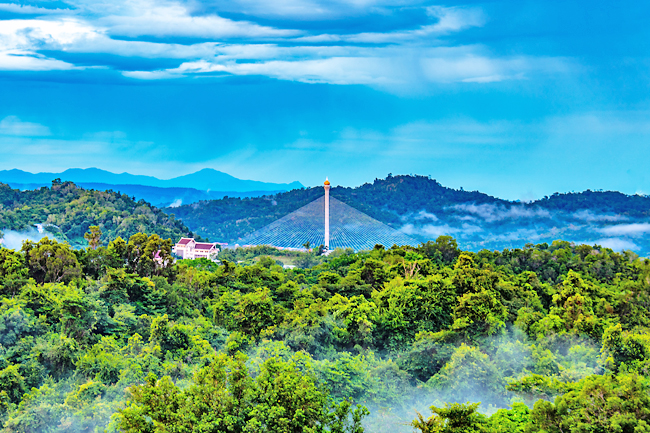It was good to see, as reported in the Bulletin on January 30, the authorities in Singapore promoting Brunei tourism, in particular eco-tourism, through a face-to-face networking session with a number of travel agents in the city state.
But Brunei’s potential for tourism development is far beyond its nature. For any country, tourism is a unique sector that needs not compete head-to-head with other countries. The realisation of tourism potential for each country depends on how each attraction is clinically selected, developed and marketed. More often than not, each attraction does not stand alone, but rather, is coalesced into a relation to give greater multiplier effects.
This is the strength of tourism – mobilising many different sectors at the same time.
However, it can become a problem, too, in ensuring these sectors work in tandem. Because of the interdependence, tourism is seldom promoted piecemeal. Nature, for instance, is often coupled with golf, excursion, diving and camp. Packages are thus formed to provide tourists with a wider choice. Whatever attractions are in these packages, the fundamentals to satisfy them remain one and the same.
First and foremost, any promotion must be true to its quality as the very essence of promises made. As the host, each destination country is morally and practically responsible for the delivery of the utmost quality of services to tourists in an environment where safety and health is upheld. The host itself must keep its liability at bay by ensuring all requisite infrastructures and services are of high standard. Tourists try to avoid flimsy and sub-par accommodation, inferior transportation, low quality food, foul surrounding, inhospitable people and lacklustre safety and security, and other forms of disorganisation. Promises in any tourism promotion are serious business. The host country needs to be highly-organised, fully-committed and capable of managing the influx of tourists.
The authorities need to conduct a clinical assessment of the current condition of all local tourist destinations as whether they are visitable, not up to standard or a liability to safety.
Kampong Ayer is a case in point. It needs to be properly examined before it is further promoted. From reliable grapevine information, many parts of the well-known village are currently in rundown condition and left unrepaired. Many houses are no longer in ideal habitable state, so are facilities for jungle visitation, such as the viewing passageway canopy and related structures. They need a proper safety and working order assessment.
Nature, like jungles, can easily be taken for granted and be viewed as being eternally promotable, but if the logistics is weak, jungles can be the biggest liability.
Given the proven vast economic potential of tourism, no country would want to miss out on it. But doing promotion alone is not enough to reap the economic benefits.
As in any economic venture, upfront financial commitment is needed to lay out proper logistics to form the bedrock of requisite infrastructures, services and management. It would be nice to be able to project the expected number of tourist arrivals and its economic return, but its realisation depends so much on political will, budgetary commitment and sound organisation. None in the whole process is a one-off; every aspect needs to be sustained or, better yet, upgraded.
Jerantut







